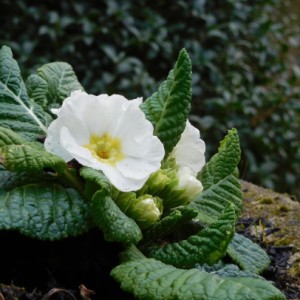"A Dead Rose"
O Rose! who dares to name thee?
No longer roseate now, nor soft, nor sweet;
But pale, and hard, and dry, as stubble-wheat,—
Kept seven years in a drawer—thy titles shame thee.
The breeze that used to blow thee
Between the hedgerow thorns, and take away
An odour up the lane to last all day,—
If breathing now,—unsweetened would forego thee.
The sun that used to smite thee,
And mix his glory in thy gorgeous urn,
Till beam appeared to bloom, and flower to burn,—
If shining now,—with not a hue would light thee.
The dew that used to wet thee,
And, white first, grow incarnadined, because
It lay upon thee where the crimson was,—
If dropping now,—would darken where it met thee.
The fly that lit upon thee,
To stretch the tendrils of its tiny feet,
Along thy leaf's pure edges, after heat,—
If lighting now,—would coldly overrun thee.
The bee that once did suck thee,
And build thy perfumed ambers up his hive,
And swoon in thee for joy, till scarce alive,—
If passing now,—would blindly overlook thee.
The heart doth recognise thee,
Alone, alone! The heart doth smell thee sweet,
Doth view thee fair, doth judge thee most complete,—
Though seeing now those changes that disguise thee.
Yes, and the heart doth owe thee
More love, dead rose! than to such roses bold
As Julia wears at dances, smiling cold!—
Lie still upon this heart—which breaks below thee!
Elizabeth Barrett Browning (1806 - 1861)
A dead rose left on a window ledge at St Mary's Church, Chesham. A contrasting fresh spring polyanthus, growing in the churchyard, in extras.


Comments
Sign in or get an account to comment.


